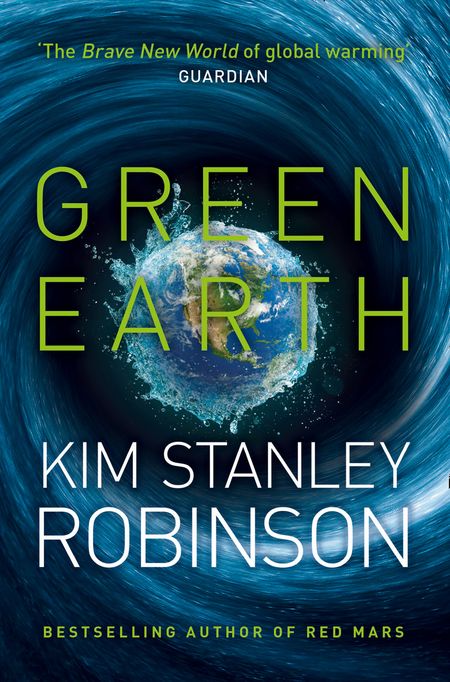Kim Stanley Robinson is widely regarded as one of the finest science fiction writers alive today. He has been writing since 1975 but is best known for his ‘Mars Trilogy’ which started with Red Mars published in 1992 which won the 1993 Nebula award for best novel, continued with Green Mars (1993) which won the 1994 Hugo Award for best novel and concluded with Blue Mars (1995) which also won the Hugo Award for best novel in 1996. He is also well known for his ‘Orange Country Trilogy’ (also known as Three California’s) which comprises of The Wild Shore (1984), The Gold Coast (1988) and Pacific Edge (1990) with Pacific Edge winning the Campbell Memorial Award.
KSR was born in Waukegan, US on the 23rd March 1952 but spent his early years in California. In 1974 received a B.A. in Literature from UC San Diego before studying at Boston University where he gained an M.A. in English in 1975. His 1982 Ph. D. thesis was published as The Novels of Philip K. Dick in 1984. He married his wife, Lisa Howland Nowell in 1982 and they now have two sons. He lived in Switzerland during the 80’s but has now returned to his beloved California.
KSR has won almost every science fiction award possible for both his novels and short stories. To date he has won the Nebula, Hugo (twice), Asimov, John W. Campbell Memorial, Locus and World Fantasy Awards. His work has been a huge critical and popular success with the ‘Mars Trilogy’.
Prior to his Mars novels he also wrote Icehenge (1984), The Memory of Whiteness (1985), Escape from Kathmandu (1989) and A Short Sharp Shock (1990). His first collection of short stories was The Planet on the Table (1986) followed by Remaking History (1991), both of these were compiled into one volume called Remaking History and Other Stories (1994). Since then he has published The Martians (1999) which contains short stories along with novella’s and poetry linked to the ‘Mars Trilogy’. Antarctica (1998) dealt with many of the ecological issues surrounding Antarctica, his concern with environmental issues is well known and he edited Future Primitive (1994) a anthology dealing with many ecological issues. The Years of Rice and Salt (2002) was an ambitious epic imagining a world where the Plague wiped out 95% of the population of Europe, leaving the East to become the dominant force in the world. His last book before writing Galileo’s Dream, Sixty Days and Counting is the final installment of ‘The Capital Code’ trilogy which tackle the issues of global warning, science and politics.











